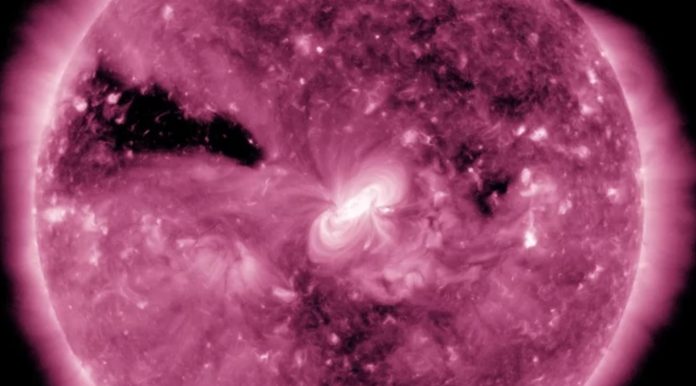NASA delivers a colorful total solar eclipse as seen by the Solar Dynamics Observatory as the Earth blocks its view of the sun.
Earth-bound humans will have to wait until 2019 for the next total solar eclipse (and North Americans will have to wait until 2024), but NASA’s orbital Solar Dynamics Observatory (SDO) gets to witness a series of scenic solar eclipses twice a year.
NASA posted an eye-searing GIF Tuesday showing the SDO’s view of a total eclipse from Sunday. The space agency says this marks the beginning of the spacecraft’s eclipse season, which lasts about three weeks when the Earth temporarily blocks the SDO’s view of the sun.
The festive purple color comes from the SDO snapping the images in an extreme ultraviolet light wavelength, which is colorized for the benefit of human eyes.
This early total eclipse happened pretty quickly, but the darkness will extend to 72 minutes at the peak of the SDO’s eclipse season, which will last until March 5 this year.
The SDO launched in 2010 on a mission to study the sun’s activity and the impact it has on space weather and conditions on Earth.
Though the Earth is briefly interrupting the SDO’s view right now, the observatory has been incredibly prolific in delivering images to scientists. Back in 2015, it sent back its 100 millionth image of our closest star.















